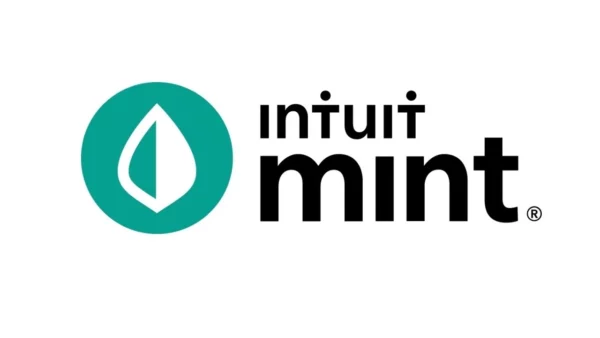Last updated Mar. 3, 2023 by Charles Zemub
Tracking your net worth is a great way to monitor your financial progress. It’s also an excellent way to spot trends and decide your finances. So if you’re already tracking everything from your spending habits to how much you have in various accounts, why not include net worth?
We’ve rounded up some of our favorite ways to track your financial situation, whether for free or for a fee.
Mint.com

Mint is a free online tool that will help you track your budget and net worth.
You can use Mint to:
- Track your investments.
- Keep an eye on your expenses.
- Find out how much debt you have (and whether it’s growing or shrinking).
- See how much money you save each month and what type of savings account it’s in (checking, savings, CD).
Mintnetworth
Mint is a free online service that tracks all your financial accounts in one place. You can use Mint to monitor your net worth and set goals, as well as set up budgeting tools, alerts, and retirement calculators.
Personal capital
88 is a free tool that helps you track your net worth and other financial metrics. The agency also offers tips on managing your money and alerts better when major changes happen in the market.
Personal capital provides an easy way to keep track of all your accounts, including credit cards and retirement plans like 401k plans.

Personal capital’s dashboard gives you an overview of all the important numbers: how much you have invested in stocks, bonds, and cash; how much interest you’re earning on your investments; how much debt you have; etc.
The dashboard also shows how these figures compare with what they were four years ago—a great way to see trends over time or if something specific caused them to change (like switching jobs or retiring).
Networthiq
NetworthIQ is a free net worth tracker that helps you track your investments and debt. You can log in. Once logged in, you’ll be prompted to enter basic information about yourself and the people in your household (e.g., name, date of birth).
This information will help NetworthIQ calculate how much money you’ve earned this year and over time.
Once this info has been entered into the system, it’s time to start tracking! First, click on “Add Transaction” and select what kind of transaction it was (e.g., credit card purchase or bank transaction) so that NetworthIQ knows which category should be applied to it (credit cards vs. cash).
From here, enter the amount spent or deposited into each category and any notes related to each transaction (like why you bought something). If everything looks good at this point – congratulations! You’ve successfully created a net worth tracker account.
Networthingot
Networthingot is a free, no-signup-required net worth tracker that allows users to track their net worth and income. You can add as many accounts as you’d like, including bank accounts, investments, and loans. The interface is easy to use—enter the account’s balance, and Networthingot calculates everything else.
The best part about Networthingot? It provides helpful charts to help you visualize your financial progress over time. They show how much money (and how many assets) were added or subtracted from your overall balance over time in a way that makes it easy to see if you’re progressing toward any savings or investment goals (like paying off debt).
This tool also works for tracking bills: You can see how much was spent on each billing category over the past few months or years by clicking on each month/year on the calendar view at the top of your dashboard page.
Quora
Quora is a question-and-answer website where you can ask questions and get answers from people with experience on the topic you’re interested in. The best part? It’s free!
- Questioning: You can ask and answer questions about any topic.
- Following topics: You can also follow topics that interest you so that whenever someone asks a question related to that subject, it will be delivered straight to your inbox (think Reddit).
- Following people: If you prefer, follow individuals with expertise in your chosen field and receive updates on their activity.
Financial Mentor
Financial Mentor is a free, easy-to-use tool that allows users to track their net worth. You can download the Financial Mentor app onto your phone or computer and follow your net worth immediately. The app also provides access to other helpful tools such as retirement planning, budgeting, debt management, etc.
Yahoo
Yahoo’s net worth calculator is a great way to track your assets and debts. To use it, you need to input some basic information—like how much money you earn each year, how much goes toward debt payments, and how much cash is left over for investments.
From there, Yahoo will estimate your net worth based on all the data you’ve entered into its tool. For example: If you make $50,000 per year but only save 5% of that income in savings accounts and investments (and spend 15% on taxes), then your estimated net worth is $45,000 at the end of each month ($50k – 15%).
Tracking net worth
The best way to track your net worth is by using an online tool like Personal Capital or manually following it on paper (using a spreadsheet or notebook).
I prefer the first option because it’s easier and more convenient—but if you don’t have access to either one of these options, then the second method will work just fine too.
As long as you take some time each month (or year) to calculate your current financial situation, then there really isn’t much else that needs doing regarding this topic.
However, if something changes in life, such as buying/selling property, then keeping track of those changes will be important too.
What is net worth?
Net worth is the number of assets you own minus the number of liabilities you have. Assets include cash, investments, real estate, and personal property like cars, jewelry, and furniture.
Disadvantages include outstanding debts such as credit cards or student loans. So if you have $100k in assets but also owe $70K on your credit card debt, your net worth would be $30K ($100-$70).
Frequently Asked Questions
What is the fastest way to calculate net worth?
Calculating your net worth is easy. The first step is to calculate your gross income, the total amount you earn monthly before any expenses are taken out.
Gross pay includes all sources of income, such as your salary, bonuses, and raises; dividend payments from stocks or mutual funds; interest earned on investments; rental properties’ rent paid to you; alimony/child support payments coming into the household; royalties earned off related projects (such as books); etc.
Next, subtract all expenses from that number. Costs include car payments if you have one or more vehicles on loan; mortgage or rent payments (if applicable); utility bills (electricity, phone service); food costs at home or grocery store purchases made with cash using debit cards (or credit cards).
Lastly, add up all remaining assets such as bank accounts with positive balances over zero dollars and investments held outside retirement plans like 401ks – then subtract any outstanding debt owed by those same assets like mortgages/rentals owed on homes or land parcels owned outright without having borrowed money yet invested into projects like real estate renovations.
What should net worth be at 40?
Net worth is the number of assets you have minus your debts. There is no official definition of net worth, but it’s usually calculated by subtracting your total liabilities from your investments.
To determine your net worth, you first need to know how much money you make each year and how much money goes into savings. Once you have a good idea of those two numbers, take a look at the average net worth by age below to see where yours falls on the spectrum:
- 20s: $100k-$200k
- 30s: $200k-$400k
- 40s: $400k-$600k
What is the fastest way to calculate net worth?
Calculating your net worth is a great way to understand how much money you have or don’t have. To do so, add up the total value of all of your assets and subtract from that any outstanding debts. For example, if you own a house worth $300K and have no mortgage but also owe $50K in student loans, your net worth would be $250K (the combined value).
To calculate this by hand:
- List all your assets in one column next to their corresponding values (e.g., home & car).
- List all liabilities in another column next to their corresponding values (e.g., credit card debt & student loan debt).
- Subtract the sum of liabilities from the sum of assets for each item listed above – this is an approximation; however, since credit card balances are often not fully discharged upon death or divorce, they should be included as outstanding debts even if they’re paid off within months after being issued (or could potentially be paid off quickly at some point).
Does Mint track net worth?
Mint does not track your net worth. Instead, it tracks your income and spending but doesn’t show you how much money you have in the bank or how much debt you owe.
Granted, giving yourself a solid idea of how much debt you owe helps pay down your loans and save for retirement (or whatever else it may be).
But, if that’s what Mint is missing for you, then plenty of other programs out there can help with this task—some even come from Mint itself.
What is the average net worth by age?
The average net worth in North America is $943,000. This means that if you had to liquidate all of your assets and cash in on everything you own, you’d have enough money to pay off debts and still be left with enough funds to live comfortably for years.
In the United States, the average age at which someone reaches their peak net worth is 54. At this point, they’ve often been working for decades and have paid down their mortgages or other big debt, such as student loans or a car loan (assuming they bought a brand-new car).
They’ve also been investing for many years. They may even have started saving for retirement by now—especially if they’re close to eligible for Social Security benefits or Medicare coverage.
What is the net worth of a person?
Net worth is the total amount of money you have in the bank, investments, and other assets minus your debt. In other words, if you own $100 million in cash and investments but owe $90 million on your mortgage, car loan, and credit card bills—your net worth would be negative $10 million.
The net worth calculation can also be viewed as how much material wealth you have (assets) versus how much you owe (liabilities).
Summary
A great, free way to track your net worth.
Mint is a free, easy-to-use online financial management tool. You can use it to track your net worth and keep tabs on your budget, but it’s particularly good at helping you keep an eye on your accounts in one place.
It’s also super simple to set up, and there’s no need for manual data entry—you link all of your bank accounts and credit cards to the app, and Mint does the rest. In addition, it will automatically update itself whenever something changes, like when you receive or spend money from any of these accounts.
Mint has a helpful mobile app that makes it easy to check in on things when you’re away from home (or even sitting at home).
The mobile app is available for iPhone and Android users, so there’s no excuse for not tracking everything on the go! The most popular feature? Automatic categorization based on spending habits.
Here are a few other free tools to track your net worth. The first and most important tool is a spreadsheet.
You can use the same spreadsheet you used to track your spending, but now you’ll need to include your assets (savings accounts, 401Ks, etc.) and liabilities (credit cards, student loans, and mortgages).







